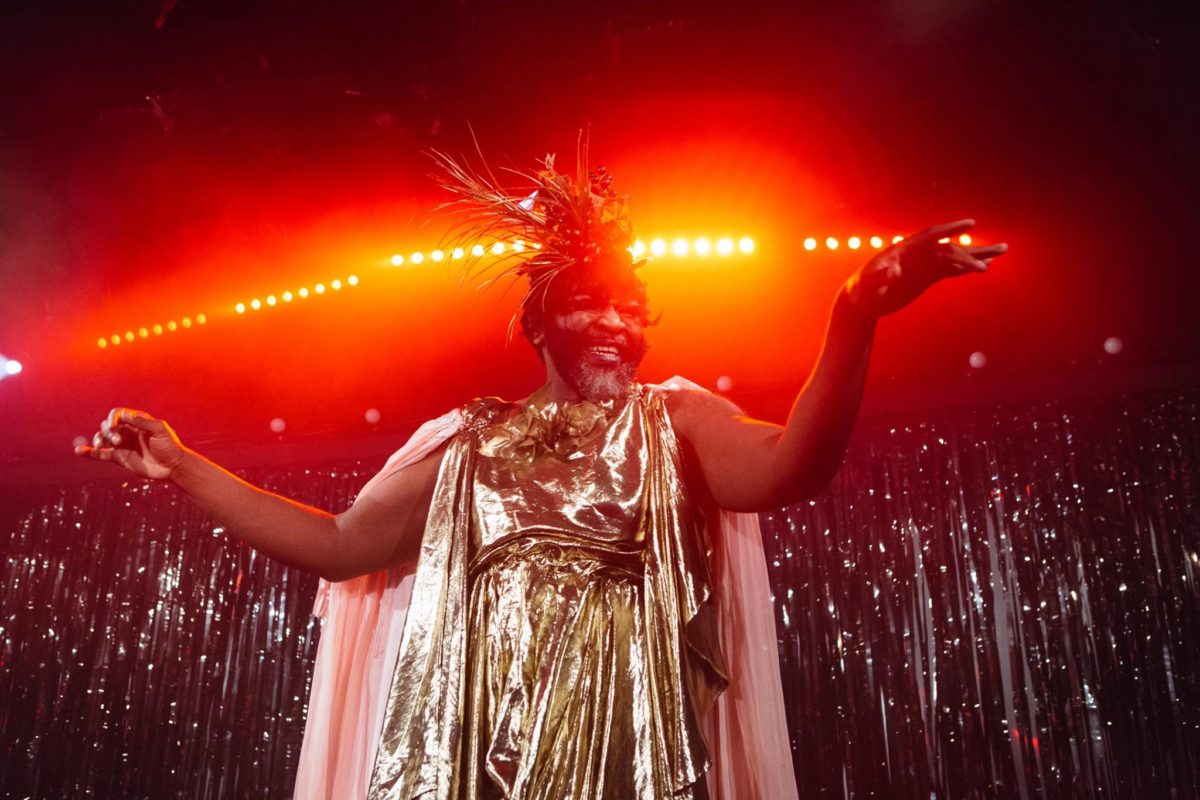
Effigies of Wickedness (Songs Banned by the Nazis)
at the Gate Theatre ☆☆☆☆
Once the Nazi regime took power in 1933, it required a registry of all German musicians and as a result, hundreds of talented composers had their work deliberately suppressed and careers ended simply because their race or style of music offended the Third Reich. A generation of incredibly innovative and promising musicians were excluded from their place in music history.
By 1938, an exhibition of this so-called “degenerate” music was organized in Dusseldorf where Jazz, operettas and famous works by composers such as Mendelssohn, Mahler, and Schoenberg were displayed as examples of unacceptable music. The irony is – it sold out! Eighty years later, tonight’s show is also sold out and draws heavily from the catalogue for that exhibition.
We enter a super-chilled performance space with polished black floors, mirrored walls with black tinted glitter curtain framed by exposed bulbs, like a giant makeup mirror.
There appears to be a massive pile of rubbish on the floor; a life ring, an old boating hat, flowers. This turns out to be the wardrobe and props department! – performers take from this pile whatever clothing suits the song, whichever prop will serve the moment.

There are three gifted musicians playing a variety of instruments including violin, saxophone, oboe and accordion and all entertainingly led by Phil Cornwell (Musical Director) on piano.
The audience’s chairs are set round tables, cabaret style, the scene is set and we are transported into a heady, smoky, underground, Berlin sleaze pit in Weimar Germany. You find yourself listening to the lyrics like they are messages from the dead – desperate for insight to prevent history repeating itself.
Three songs by Misha Spoliansky cover a variety of themes including a sexually liberated love triangle between two women and a man (Best Girlfriends 1928).
The klezma tinged Lavender Song (1920) has lyrics such as “…and still most of us are proud to be cut from a different cloth!” and is possibly the world’s first gay anthem.
The piercing lyrics of Life’s a Swindle (1931) chants “The left betrays, the right dismays, the country’s broke and guess who pays?” Or how about the strength & power that can be found in unity (Solidarity Song by Brecht 1930).

Needless to say, the singing is just awesome, with every syllable clear as a bell. What a joy to hear such justice done to these almost forgotten songs by such a talented and experienced cast of opera singers.
There is a delightful mix of the old and the new as Le Gateau Chocolat does a quick change on stage he quips “You thought you would see decadence and transgression and all you get is M&S Shapewear!”
Indeed Gateau’s years of cabaret experience means he dominates every moment he is on stage – at one point (during The Ballad of Marie Sanders 1939) he has one foot on the table and the audience in the palm of his hand – it’s electric.
The piece as a whole is not without its flaws, however. Yawning gaps in the action allow the hard earned atmosphere to deflate like a balloon. Audience interaction feels forced and labored by those less steeped in that particular tradition.
After an annoying false ending there is a rising bass rumble and changing lighting state – we seem to reach back through time and see these joyous, funny performers are literally the walking dead. The noise we hear is the sound of the coming apocalypse.
Effigies of Wickedness (Songs Banned by the Nazis)
at the Gate Theatre 3 May – 9 June
Directed by Ellen McDougall
Designer – Ellan Parry
Arranger – Corin Buckeridge
Dramaturg – Christopher Green
Lyrics – Seiriol Davies from literal translations by David Tushingham
Musical Director – Phil Cornwell
Movement Director – Malik Nashad Sharpe
Lighting Designer – Azusa Ono
Sound Designer – Dan Balfour
Cast – Peter Brathwaite, Katie Bray, Le Gateau Chocolat and Lucy McCormick. Musicians – Geri Allen, Cassie Kinoshi, and Fra Rustumji
A co-production by the Gate Theatre and English National Opera.
Review: JONNY WARD

